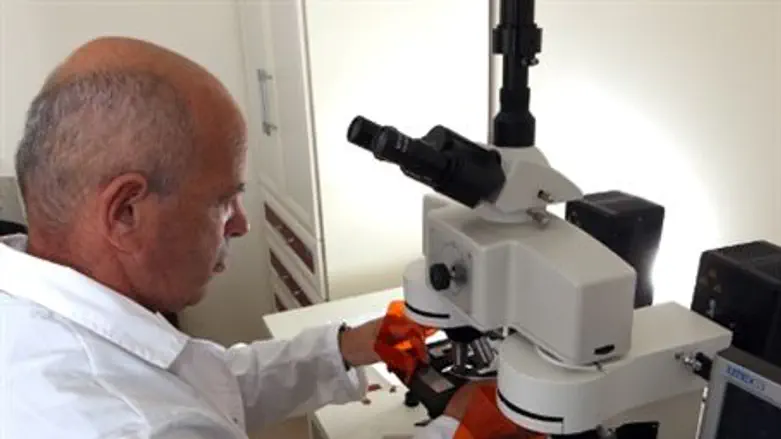
Hebrew University research teams have found how bacteria can survive treatment with antibiotics - even when the strain is not inherently antibiotic-resistant.
The discovery, which was published this week in prestigious science journal Nature Communications, could possibly improve treatment methods for bacterial infections.
Hebrew University's medical school and department of developmental biology and cancer research coordinated the research. Together, they found that while some bacteria mutates to become resistant to antibiotics, a small percentage also simply becomes "inactive" during the course of treatment.
The "inactive" bacteria - also labeled as "persistent bacteria" - then reactivates itself to reinfect patients, the researchers say.
Until now, it has been known that there is a relationship between the dormant bacteria and toxin called HipA. However, the medical world could not determine what chain of actions activates the toxin, eventually causing some bacteria to sleep and thus evade the effect of the antibiotics.
Now the study's authors, Professor Gadi Glazer of the Faculty of Medicine and Professor Nathalie Balaban of the Racah Institute of Physics, were able to unravel the mechanism that causes certain bacteria to "sleep," so to speak.
The research shows that when the antibiotics attack the bacteria, the toxin found in the cell prevents the entry of crucial amino acids - inhibiting protein-building molecules that would allow the bacteria to leave, researchers say.
Scientists say the information could provide an entirely new way to treat bacterial infections - through manipulating the protein output.
Protein and antibiotics have been linked before. In 2011, a joint project by the research teams at Hebrew University - Hadassah Medical School and a visiting professor from the University of Vienna revealed that protein synthesis under stress conditions affected bacteria. Bacteria which collapsed under "stress conditions" by the protein synthesis process demonstrated then that antibiotics could use the process as an alternative mechanism against resistant infections.